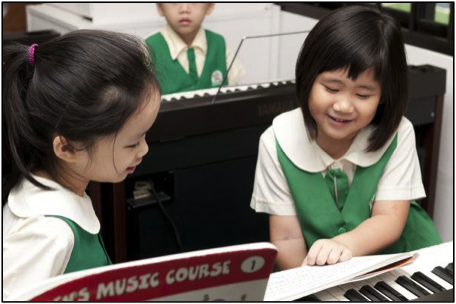7 Useful Benefits of Nursery Rhymes
by on 02/08/2025 ...

Music such as nursery rhymes can help benefit a child’s learning and development; what’s more, nursery rhymes tend to stick with us even as we grow older – people can usually remember common ones like Incy Wincy Spider and Twinkle Twinkle Little Stars, or at least remember bits of Jack and Jill.
Studies have shown that children who learn nursery rhymes and songs can reap numerous language, learning and social benefits!
Here are some ways nursery rhymes can benefit brain development and fun ideas to learn them.
Repetition of rhyme and rhythm can help children to:
1. Develop language and literacy skills
Nursery rhymes are a child’s first experience with words.
2. Develop communication skills
Help them learn new vocabulary or numeracy.
3. Enhances physical development
When actions are linked to words in the nursery rhyme, it helps boost motor skills and improves rhythm and movement.

4. Helps develop cognitive skills
Improve memory, concentration, spatial intelligence, and thinking skills.
5. Enhances individual development
Music helps develop kids with better self-control, higher self-esteem and confidence, such as when learning the nursery rhyme through activities with peers. In addition, as the early years of childhood is a period of rapid development, researchers believe that the earlier a child is exposed to music, the more the brain responds to different music tones.
6. The earlier a child studies music, the more rhythmic integration, movement and learning can strengthen the brain
7. Music aptitudes can be influenced in the early years
Through playing and listening to music before the age of seven has significant effect on parts of the brain related to planning and motor skills.
Nursery rhymes are fun – but they can be made more exciting too.

In addition, as the early years of childhood is a period of a rapid development, researchers believe that the earlier a child is exposed to music, the more the brain responds to different music tones.
So, music is indeed important in contributing to a well-rounded early childhood education. Recognising this, music has been at the heart of the Kinderland curriculum since it started in Singapore 36 years ago.
Kinderland’s Music with Movement Programme and Children Music Course conducted once a week for Nursery – Kindergarten 2 level children compasses listening, singing, rhythm training, music and movement, music with story and ensemble performance. These courses help children to improve their concentration, boost self-confidence, enhance their speech, express themselves better, and further develop sensory motor abilities, amongst others. By Dr Carol Loy, Curriculum Director of Kinderland
Please click here for all Kinderland centres.
Contact: 7 Useful Benefits of Nursery Rhymes
























